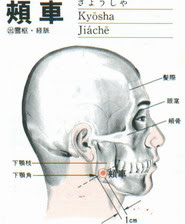
Fascinating fascinating fascinating story in the New Yorker this week. It uses a profile of financial trader Martin Armstrong to explore the idea of cycles as they apply to historical, political and economic events (Armstrong predicted, to the day, the stock market crash of October 1987). The article does a wonderful job of exploring the many different types of cycles and their various proponents, but ends up portraying Armstrong as a bit of a nutjob.
(Which is probably the safe route. As the article itself notes, financial traders who use the idea that financial markets move according to fixed cycles, rather than the idea that the market is relatively unpredictable, generally don't talk about it in public. "'It's too embarrassing to explore in modern economics,' another trader said. 'These topics are not fit for polite conversation in most circles.'" I suppose if the writer had appeared to take this Armstrong character more seriously, he might have risked looking crazy himself. This is also a very interesting phenomenon, but I'll have to save it for another day...)
How does this relate to Chinese medicine? Chinese medicine is part of an epistemological system that incorporates many different philosophies from different periods of Chinese history. Part of the genius of Chinese society is that instead of discarding old systems and modes of thought (philosophical, mathematic, scientific) for new, the old is built upon and improved. The very very oldest system that Chinese medicine (and by extension, all Chinese philosophy) relies upon is the Yi Jing (aka I Ching), which is essentially a forecasting tool.
The Yi Jing is both very simple and very complex. (I'm hardly qualified to write on the subject - if you're seriously interested, please consult your local library, bookstore or website.) A series of eight trigrams represent all the phenomena in the universe, and by putting two together you get a hexagram. The hexagram can then be interpreted in various ways to give you guidance on a present situation or future event. There's actually a whole branch of Chinese medicine which
incorporates the Yi Jing into treatment.
Cycles are found everywhere in nature. What is the most obvious? The cycle of day and night, sun and moon. After that, the cycle of the four seasons. Most people never go beyond this. But suppose it was possible to observe a longer cycle? A cycle of eight years, or twelve, or sixty, or a hundred and eight? Natural cycles come and go, and staying in harmony or "going with the flow" of the seasonal universal energy is an excellent way to maintain and improve your health. Some of these practices come naturally, such as wearing more clothes in winter and less in the summer. Many have been largely forgotten and seem anachronistic in the modern world, which some scientists still maintain is governed purely by matter and not energy. After all,
why not drink ice-cold water with your meal? The more esoteric require some calculation and the services of an expert, such as picking an auspicious date for opening a business or the right spot for building a home.
I'm not good at ending these posts. It's a great article, and whoever runs
martinarmstrong.org has posted the
full New Yorker profile (pdf) on their website. Take a look. Then learn more about the Yi Jing.






